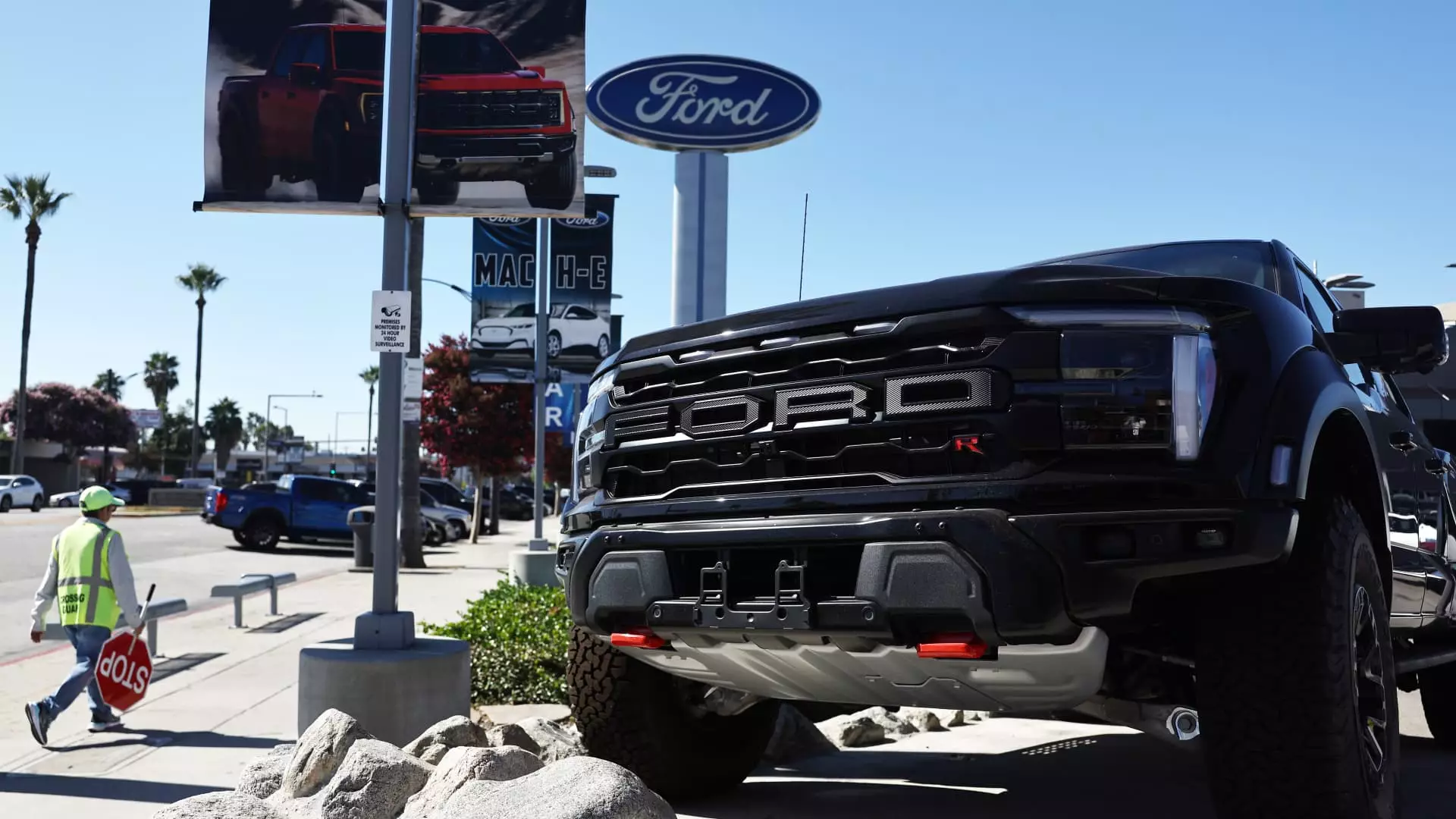In the fluctuating landscape of American automotive manufacturing, Ford Motor Company recently found itself facing a critical challenge: the imposition of a 25% tariff on imported vehicles under the Trump administration. Tariffs often serve as a double-edged sword, intended to protect domestic industries while simultaneously straining relationships with international partners. As these tariffs loomed, Ford took decisive action not just to survive, but to thrive within the turmoil. Their “From America, For America” employee pricing program serves as a brave attempt to reclaim consumer trust and stimulate sales during a time of economic uncertainty.
What’s remarkable about Ford’s strategy is that it engages directly with consumer sentiments. Amid prevalent anxieties regarding rising prices and economic instability, the company offered a lifeline to its customers. This initiative is not merely a daytime special; it’s a calculated move designed to showcase Ford’s predominant manufacturing presence in the U.S. Moreover, by lowering vehicle prices to compete with imported options exacerbated by tariffs, Ford deftly places itself as the consumer-friendly alternative during a turbulent transition. As automakers often overlook the emotional aspect of car buying, Ford’s assurance resonates with potential buyers who are wary of economic fluctuations.
Retailers and Profit Margins
However, such incentive programs have traditionally raised eyebrows among dealerships due to their impact on profit margins. In an industry where razor-thin margins often dictate viability, selling vehicles close to or beneath invoice prices is a gamble that can leave dealerships vulnerable. Yet, in a bold statement to the auto industry, Ford is not only supporting its retailers financially through this program but also showing that collaboration can flourish in the face of adversity.
Dealer Marc McEver underscored this sentiment by stating that Ford’s initiative could invigorate sales in a saturated market. The potential for a spike in consumer interest becomes tangible when dealers and the manufacturer work in unison. In this manner, Ford is not just trying to sell vehicles; it’s striving to cultivate a sense of unity that resonates with the American consumer. It’s a savvy acknowledgment that, at the end of the day, both retailers and manufacturers succeed when they bolster each other.
Facing Financial Realities
As analysts parse through the situation, it’s hard to ignore the implications of broader economic conditions. Ford, at present, appears to be more resilient than some of its competitors, particularly with a strong focus on its truck lineup, which remains highly coveted in the U.S. market. The company’s stock performance relative to its peers reflects this stability, as Ford was only minimally affected compared to Stellantis and General Motors. This brings to light the importance of strategic positioning during times of crisis, where those with a robust manufacturing base stand to benefit the most.
Nevertheless, competition is fierce, and other automakers quickly caught onto Ford’s playbook by unveiling similar initiatives. Stellantis has followed with its own pricing program, while Hyundai chose to freeze prices for a period. The scattered response from the industry illustrates a collective attempt to navigate the uncertainty brought about by tariffs. However, while collaboration is key, does it dilute each company’s unique selling proposition? Without a distinctive voice, they risk being perceived as one monolithic entity — an untenable position in today’s highly competitive landscape.
The Urgency to Act
Ford’s swift action may also be a wise tactical maneuver in light of J.P. Morgan’s recent projection of increased recession odds. With the potential for a looming economic downturn, this preemptive strike to incentivize sales ensures that Ford capitalizes on short-term demand while setting the stage for a more secure footing within a shaky economic landscape. The urgency conveyed by executives and analysts alike highlights a critical truth: Now may be the last shot for companies to meet consumer needs before any recession-induced slump limits purchasing power.
Consumers are reacting with double the intensity, driven by limited-time pricing and a looming sense of urgency to buy before prices rise. The mix of economic anxiety coupled with an enticing offer can turn browsers into buyers, facilitating a sense of urgency that many brands are striving to harness. In a world where connecting with the consumer’s emotional landscape can make or break a sale, Ford is seizing the moment.
As the automotive landscape evolves, Ford’s mix of bold innovation and savvy marketing underscores a deeper lesson for all manufacturers: when faced with uncertainty and chaos, the most formidable advantage is a readiness to adapt and respond quickly.



Leave a Reply